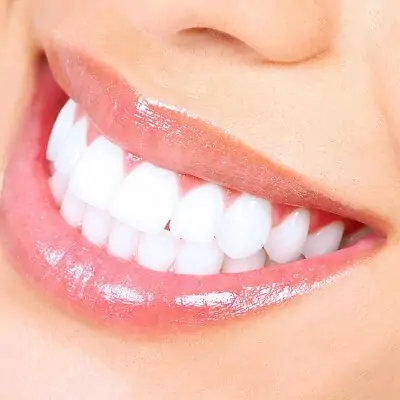Beyond a Simple Smile: The Relationship Between Poor Dental Health and Your Overall Well-Being

Aesthetics is frequently the first thing that springs to mind when we think about our teeth. It’s general knowledge that attractiveness, confidence, and good health are correlated with a bright, healthy grin. That being said, dental health is considerably more important than looks. A person’s physical, mental, and emotional well-being can all be negatively impacted by poor dental health. This article delves into the significant relationship between dental disease and overall health, emphasizing the ways in which oral health neglect can affect all facets of life.
1. The Effects of Missing Teeth on Physical Health
Your general physical health is inextricably tied to the state of your teeth and gums. Studies have demonstrated the correlation between inadequate oral health and a range of systemic ailments, underscoring the significance of upholding proper dental hygiene.
A. Heart-related Conditions
The association between poor dental health and cardiovascular disease is among the most concerning. According to studies, people who have gum disease—especially those who have periodontitis, a severe form of the illness—have an increased risk of heart disease. Gum disease-related inflammation can result in bacterial accumulation in the bloodstream, which promotes the development of arterial plaques. Because these plaques may later cause heart attacks or strokes, it is important to take good care of your teeth because bad teeth affect your health .
B. Diabetes
There is a reciprocal association between diabetes and dental health. Due to their bodies’ weakened ability to fight infections, people with diabetes are more likely to develop gum disease. On the other hand, untreated gum disease might worsen diabetes-related issues by making it harder to regulate blood sugar levels. Keeping your teeth clean is essential to controlling your diabetes and avoiding its consequences.
C. Issues with the Respiratory System
Respiratory diseases like pneumonia can result from breathing in bacteria from infected teeth and gums. The risk is higher in the elderly and in people whose immune systems are weakened. Maintaining good dental health can enhance general respiratory health and lower the risk of certain diseases.
D. gastrointestinal health
Teeth are essential in the process of breaking down food into smaller, easier-to-manage pieces, which is where the digestive process starts. Chewing can be difficult when one’s teeth are missing or rotting, which can cause incorrect digestion and even gastrointestinal problems. Additionally, oral bacteria have the potential to enter the body and alter the gut microbiota, making digestive health even more difficult.
2. The Effects of Missing Teeth on the Emotions and Psychology
Poor oral health has major effects on one’s physical and mental well-being in addition to its physical effects. Your self-esteem, social interactions, and general mental health can all be negatively impacted by the way your teeth look and feel about you.
A. Self-Respect and Self-assurance
One of the first things people notice about you is usually your smile, and having poor teeth can negatively affect your self-esteem. People who have dental problems, such as missing, discolored, or crooked teeth, may be ashamed or self-conscious about how they look, which makes them reticent to speak, smile, or interact with others. This avoidance can exacerbate feelings of inadequacy and loneliness by starting a vicious cycle of low self-esteem and social disengagement.
B. Social Phobia and Seclusion
Your capacity to connect with others is one of the most important aspects of mental health, and having terrible teeth can make it difficult. Individuals who have obvious dental issues may experience social anxiety and, in certain situations, social isolation due to their fear of rejection or criticism. Avoiding social interactions can exacerbate feelings of depression and loneliness, which can have a detrimental effect on one’s general and mental health.
C. Effects on Personal and Professional Lives
Your connections in both your personal and professional life may be impacted by the way your teeth look. Intimacy and communication can be negatively impacted by insecurity caused by poor teeth in romantic relationships. People who are not in good dental health may experience prejudice or discrimination at work because a bright smile is frequently linked to competence and professionalism. These elements may exacerbate anxiety, tension, and a lower standard of living.
D. Disorders of the Mind
The psychological effects of dental decay can even contribute to the emergence of mental health conditions. For example, the long-term stress and worry linked to poor oral health can raise the likelihood of developing depression. In addition, people who already have mental health issues could disregard their dental cleanliness, which can start a vicious cycle in which bad mental health deteriorates dental health and vice versa.
3. The Socioeconomic Aspects and Dental Care Accessibility
Access to dental care is largely determined by socioeconomic position, and this has an impact on general well-being and oral health. Gaining insight into these variables can help clarify the wider effects of dental health inequalities.
A. Dental Care Accessible
Many socioeconomic factors, such as geography, income, and education, have an impact on access to dental treatment. People from lower-class homes could not have access to reasonably priced dental care, which could result in untreated tooth problems that deteriorate over time. Residents in rural areas may find it more difficult to acquire regular check-ups and treatments due to limited access to dental care.
B. Dental Care Costs
Many people find the cost of dental care to be a major barrier, particularly those who do not have dental insurance. Regular checkups and cleanings can be costly preventive care, and more involved operations like crowns, fillings, or orthodontics might be unaffordable. Because of this, people can put off or refuse necessary dental care, which would cause dental problems to worsen and pose health hazards.
C. Knowledge and Consciousness
Socioeconomic position might have an impact on dental health education and awareness. People with low levels of education might not know how to properly take care of their teeth or the importance of keeping good dental hygiene. This gap can be filled and general wellbeing enhanced by public health programs that raise awareness and educate about oral health.
D. Effects on Populations at Risk
Children, the elderly, and those with disabilities are among the vulnerable groups most at risk for poor oral health because of barriers like restricted access to care and low finances. Children from low-income homes, for instance, can have greater rates of dental decay, which could have an impact on their general development and scholastic performance. Reducing these differences is essential to guaranteeing fair access to dental care and enhancing everyone’s quality of life.
4. The Significance of Routine Dental Care in Preventive Measures
Preventive interventions and routine dental care must be prioritized due to the significant influence dental health has on overall well-being. People can lower their risk of physical, psychological, and emotional problems by maintaining healthy teeth and gums through expert dental treatment and basic oral hygiene practices.
A. The Value of Oral Hygiene Every Day
Daily hygiene measures are the cornerstone of optimal oral health. Plaque accumulation, cavities, and gum disease can be avoided by using mouthwash, flossing once a day, and brushing your teeth at least twice a day with fluoride toothpaste. These easy-to-follow yet highly beneficial routines can dramatically lower the likelihood of dental issues and the related health risks.
B. Frequent dental examinations
Maintaining oral health requires routine dental checkups. Dental professionals are able to recognize the early warning symptoms of conditions like cavities or gum disease and treat patients right away to stop further damage. Furthermore, by removing tartar and plaque that are impossible to remove with routine brushing and flossing, professional cleanings can lower the risk of gum disease and decay.
C. Handling Dental Fear
Some people’s nervousness or fear of going to the dentist can keep them from getting the care they need. Dental anxiety is a frequent problem that can be treated with relaxation techniques, open conversation with the dentist, and, in certain situations, sedation dentistry. In order to maintain oral health and ensure routine dentist appointments, this barrier must be removed.
D. A nutritious diet and way of living
Oral health is greatly influenced by a balanced diet and way of living. Teeth and gums can be strengthened by eating a diet high in fruits, vegetables, and dairy products, while tooth decay can be avoided by limiting the intake of sugary and acidic foods. Furthermore, abstaining from tobacco and heavy alcohol use can lower the chance of developing gum disease and oral cancer.
E. Programs for Preventive Care Accessible
Underserved communities can benefit greatly from community-based preventive care initiatives like dental clinics on wheels or school dental programs. These initiatives can help to close the gap in dental care and enhance oral health outcomes by providing cleanings, fluoride treatments, and instructional materials.
5. In summary
There is no denying the link between poor dental health and overall wellbeing. Numerous bodily health problems, such as respiratory infections, diabetes, and cardiovascular disease, can be brought on by poor dental health. It can also have a significant effect on one’s psychological and emotional health, influencing one’s mental health, social interactions, and sense of self. Access to dental care is significantly influenced by socioeconomic variables, and resolving these discrepancies is essential to enhancing general health and wellbeing.
To keep teeth and gums healthy, preventive care—like daily oral hygiene and routine dental exams—must be prioritized. You can safeguard not just your smile but also your general health by being proactive about maintaining your dental health. Recall that teeth are an essential component of both your health and pleasure, not just a pretty smile.












